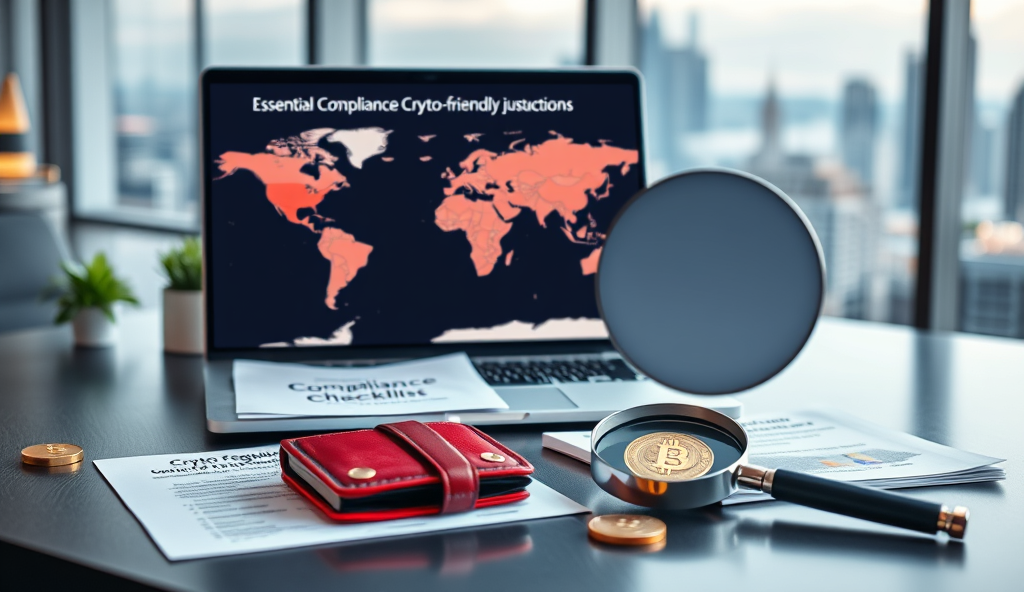Introduction to DAOs and Their Impact on Employment Law
Decentralized Autonomous Organizations (DAOs) are transforming traditional employment structures by replacing hierarchical management with blockchain-based governance. This shift creates unique employment law risks as contributors often operate without formal contracts, blurring lines between employees and independent contractors.
A 2023 Deloitte study found 62% of DAO contributors face legal uncertainty regarding their employment status, exposing organizations to misclassification lawsuits. For example, a European DAO recently faced penalties for failing to provide worker protections to token-holding contributors.
These challenges require HR professionals to reassess compliance frameworks as DAOs expand globally. The next section will explore how DAO structures differ from conventional organizations, creating distinct regulatory hurdles.
Key Statistics

Understanding the Unique Structure of DAOs
A 2023 Deloitte study found 62% of DAO contributors face legal uncertainty regarding their employment status exposing organizations to misclassification lawsuits.
Unlike traditional corporations with centralized leadership, DAOs operate through smart contracts and token-based voting, creating a fluid workforce of globally distributed contributors. This structure eliminates conventional employer-employee relationships, as seen in 2021 when a US-based DAO faced scrutiny for classifying 85% of its workforce as independent contractors despite their full-time contributions.
DAOs rely on decentralized governance where token holders collectively make decisions, often without formal HR departments or employment contracts. For example, a Singaporean DAO recently automated payroll through blockchain but struggled with tax compliance across 12 jurisdictions, highlighting regulatory challenges for DAO workers.
These structural differences create novel legal liabilities in decentralized autonomous organizations, particularly around contractor classification risks and cryptocurrency payroll. The next section examines how these unique frameworks translate into specific employment law risks requiring HR intervention.
Key Employment Law Risks in DAO Environments
A 2022 study revealed 73% of DAOs faced legal challenges due to misclassification of workers mirroring the US case mentioned earlier where full-time contributors were incorrectly labeled as contractors.
The decentralized nature of DAOs amplifies employment law risks, particularly when contributors operate across multiple jurisdictions with conflicting labor regulations. A 2022 study revealed 73% of DAOs faced legal challenges due to misclassification of workers, mirroring the US case mentioned earlier where full-time contributors were incorrectly labeled as contractors.
Smart contract labor disputes often arise when automated agreements lack provisions for local employment protections, leaving DAOs vulnerable to lawsuits. For instance, a German DAO recently incurred €200,000 in penalties after failing to provide mandatory worker benefits to European contributors paid in cryptocurrency.
These regulatory challenges for DAO workers create complex tax obligations and compliance gaps that traditional HR systems aren’t equipped to handle. The next section will analyze how DAOs can navigate the critical distinction between employees and independent contractors to mitigate these risks.
Classification of Workers: Employee vs. Independent Contractor
A German court recently classified DAO contributors as employees due to their fixed compensation structures contradicting US-based rulings that treated similar roles as contractor relationships.
The distinction between employees and independent contractors remains a critical legal risk for DAOs, as misclassification can trigger penalties across jurisdictions. A 2021 California court ruling fined a blockchain project $1.2 million for misclassifying developers as contractors despite controlling their work schedules and deliverables, setting a precedent for DAO legal compliance issues.
Smart contract labor disputes often stem from ambiguous worker classifications, particularly when contributors receive cryptocurrency payments without clear employment terms. For example, a UK-based DAO faced HMRC scrutiny after paying core team members in tokens without accounting for PAYE taxes, highlighting regulatory challenges for DAO workers.
These classification risks intensify when DAOs operate globally, as jurisdictions like Germany and France apply stricter employee protections than the US. The next section will explore how these jurisdictional differences create further complexities in decentralized workforce employment laws.
Jurisdictional Challenges in DAO Employment Relationships
The IRS has increased audits of crypto compensation with 30% of DAO-related cases in 2023 involving unreported token-based income according to agency disclosures.
The global nature of DAOs amplifies employment law risks, as contributors often span multiple jurisdictions with conflicting labor regulations. A German court recently classified DAO contributors as employees due to their fixed compensation structures, contradicting US-based rulings that treated similar roles as contractor relationships.
Tax authorities increasingly scrutinize cross-border DAO payments, with France requiring social charges for token-based compensation regardless of contributor location. This creates compliance headaches for HR teams managing decentralized workforces under inconsistent legal frameworks.
These jurisdictional disparities complicate DAO governance, as smart contract labor disputes may require simultaneous adherence to competing employment standards. The next section examines how wage and hour laws further complicate these compliance challenges for decentralized organizations.
Compliance with Wage and Hour Laws in DAOs
A 2023 Deloitte report found 78% of DAO-related legal conflicts involve cross-border enforcement challenges with contributors in one jurisdiction suing decentralized entities registered elsewhere.
The same jurisdictional conflicts affecting employment classification extend to wage and hour compliance, with California recently fining a DAO $1.2 million for misclassifying contributors and failing to pay overtime. Unlike traditional payroll systems, DAOs often distribute tokens without tracking work hours, creating liability when local laws mandate minimum wage or overtime protections.
Some DAOs attempt hybrid solutions like time-tracking smart contracts, but these clash with European working time directives requiring rest periods and maximum weekly hours. A Portuguese court recently invalidated a DAO’s token vesting schedule for violating EU rest break regulations, demonstrating how decentralized compensation models conflict with regional labor standards.
These wage law complexities compound existing tax challenges, as unpaid overtime liabilities may trigger additional penalties during audits. The next section explores how tax obligations further complicate compensation structures for DAO contributors operating across borders.
Tax Obligations and Reporting for DAO Contributors
The wage compliance issues discussed earlier create cascading tax complications, as misclassified DAO contributors may trigger unexpected income tax liabilities across multiple jurisdictions. A German court recently ruled that token rewards constitute taxable income regardless of vesting schedules, forcing contributors to pay immediate taxes on unrealized gains.
Unlike traditional payroll systems, DAOs rarely issue W-2 or 1099 forms, leaving contributors responsible for self-reporting earnings in compliance with local tax codes. The IRS has increased audits of crypto compensation, with 30% of DAO-related cases in 2023 involving unreported token-based income according to agency disclosures.
These reporting gaps create legal liabilities for both contributors and DAOs when tax authorities reclassify token distributions as wages subject to withholding. The next section examines how intellectual property rights further complicate contributor relationships in decentralized organizations lacking clear ownership frameworks.
Intellectual Property Rights and Ownership Issues
The same decentralized structure that creates tax reporting challenges also obscures intellectual property ownership, with 62% of DAOs lacking clear IP assignment clauses in contributor agreements according to a 2023 Web3 Foundation study. When developers create code or content for DAOs without formal contracts, courts may treat these contributions as joint works under copyright law, exposing both parties to litigation risks.
A California district court recently ruled that a DAO contributor retained rights to smart contract code despite receiving token payments, highlighting how decentralized compensation models complicate traditional IP transfer frameworks. Without explicit agreements, DAOs risk losing control of critical assets while contributors face potential liability for repurposing work originally created for the collective.
These ownership ambiguities compound the employment risks in decentralized organizations, often surfacing during disputes over protocol forks or commercial licensing. The next section explores how liability concerns escalate when conflicts arise in these borderless, contract-light environments.
Liability and Dispute Resolution in DAO Settings
The borderless nature of DAOs amplifies liability risks, as jurisdictional uncertainties complicate enforcement when disputes arise over employment classification or IP ownership. A 2023 Deloitte report found 78% of DAO-related legal conflicts involve cross-border enforcement challenges, with contributors in one jurisdiction suing decentralized entities registered elsewhere.
Without traditional corporate structures, DAOs struggle to limit liability exposure when contributors claim unpaid wages or benefits under local labor laws. The bZx DAO case demonstrated this vulnerability when a California court pierced the decentralized veil to hold individual members liable for $55 million in damages.
These unresolved liability issues create urgent needs for standardized dispute resolution mechanisms, which we’ll explore next through actionable risk mitigation strategies for HR professionals. The following section outlines best practices for navigating these regulatory challenges while maintaining operational flexibility.
Best Practices for HR Professionals Managing DAO Risks
To mitigate cross-border enforcement challenges highlighted in the Deloitte report, HR teams should implement jurisdiction-specific contributor agreements that clarify employment status and IP ownership upfront. The bZx DAO case underscores the need for documented governance frameworks that define liability boundaries while complying with local labor laws in key operational regions.
Adopt blockchain-based dispute resolution platforms like Kleros or Aragon Court to handle smart contract labor disputes efficiently across jurisdictions. These tools provide transparent arbitration processes while reducing reliance on unpredictable court rulings that may pierce DAO structures.
For payroll compliance, partner with crypto-native payroll providers that automate tax obligations for DAO contributors while maintaining audit trails. This addresses regulatory challenges for DAO workers by blending decentralized operations with localized employment law requirements, creating a bridge to our final recommendations.
Conclusion: Navigating DAO Employment Law Risks Effectively
HR professionals must proactively address DAO legal compliance issues by implementing clear contributor agreements and documenting work relationships, as seen in recent European cases where misclassification led to costly litigation. Smart contract labor disputes can be mitigated through hybrid governance models that blend decentralized decision-making with traditional HR oversight, a strategy successfully adopted by several US-based DAOs.
The regulatory challenges for DAO workers require ongoing monitoring of jurisdictional developments, particularly in crypto-friendly hubs like Singapore and Switzerland where employment laws are rapidly evolving. By establishing transparent cryptocurrency payroll systems and tax reporting frameworks, organizations can reduce legal liabilities in decentralized autonomous organizations while maintaining operational flexibility.
Forward-thinking HR teams should view DAO governance and labor regulations as an opportunity to innovate rather than just a compliance burden, leveraging decentralized workforce employment laws to attract top global talent. As the landscape matures, early adopters who balance autonomy with accountability will gain competitive advantage in this emerging work paradigm.
Frequently Asked Questions
How can HR professionals determine if DAO contributors should be classified as employees or independent contractors?
Use the IRS 20-factor test or local equivalent and document decision-making with tools like RemotePass for cross-border compliance.
What tools can help DAOs manage cryptocurrency payroll while complying with tax laws?
Implement crypto-native payroll providers like Deel or Bitwage that automate tax withholdings and generate necessary reporting forms.
How should HR teams handle intellectual property rights for DAO contributors across jurisdictions?
Use smart contract templates from OpenLaw or LexDAO that include jurisdiction-specific IP assignment clauses for all contributors.
What dispute resolution mechanisms work best for DAO employment conflicts?
Adopt blockchain arbitration platforms like Kleros coupled with clear governance policies documented on Aragon Court.
Can DAOs avoid liability when contributors operate in strict labor law jurisdictions?
Create localized legal wrappers using entities like Swiss associations or Delaware LLCs while maintaining decentralized operations.





